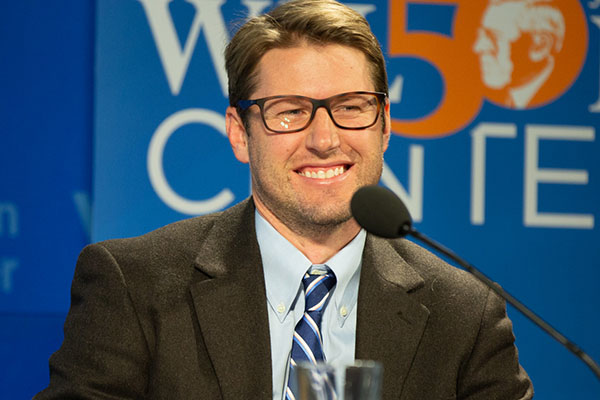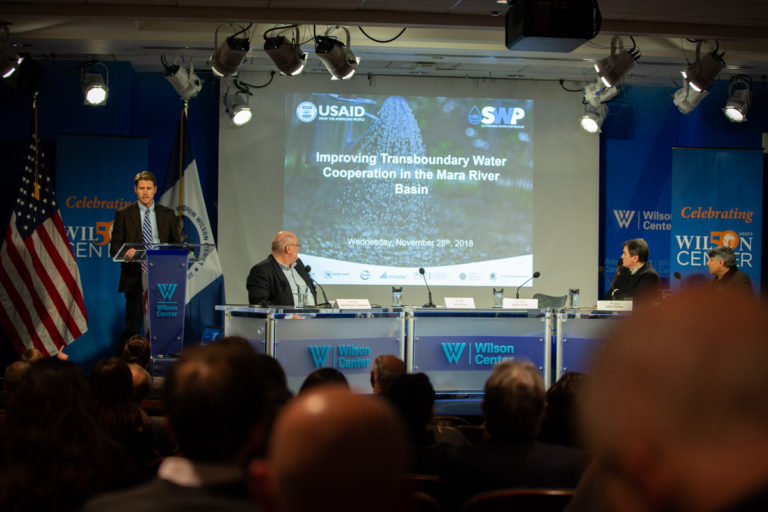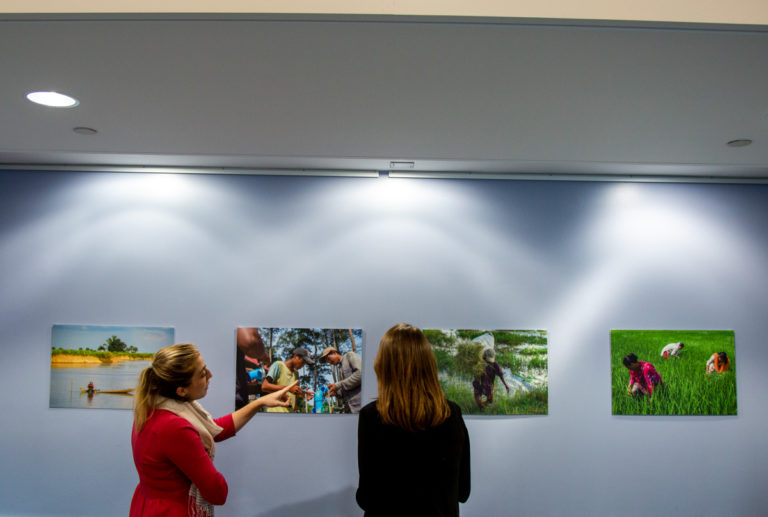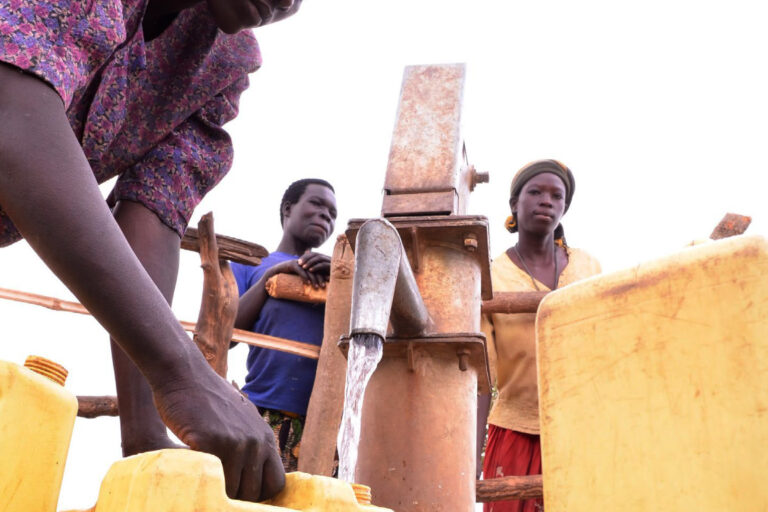
Water@Wilson: SWP’s John Parker on Transboundary Water Cooperation
Water is essential to human life. But as growing risks such as climate change and demographic shifts alter the realities of water resource management and WASH service provision, new challenges and opportunities arise. On November 28, experts gathered at the Wilson Center in Washington, D.C., to discuss the challenges of water insecurity that stand in the way of building healthy, prosperous and peaceful communities.The event helped mark the Wilson Center’s 50thanniversary and was designed to take stock of the first year of the United States’ first global water strategy and to explore new research and practice on water, peace and conflict.
“As we think about the future of water peace, a lot can be learned by looking at the institutional policy and planning developments in the Mara Basin, as these characterize in my opinion a strong enabling environment for water cooperation,” said John Parker, deputy director of Winrock’s Sustainable Water Partnership (SWP), who spoke at the conference. Parker described SWP’s work improving water cooperation in East Africa’s transboundary Mara region — a success story in which governments and stakeholders have come together to cooperate on the management of a critical shared resource.
 The day opened with a brief introduction from the Hon. Jane Harman, director, president and CEO of the Wilson Center, followed by a trio of keynote speakers who introduced the main themes of the day. One of the speakers, USAID’s Acting Global Water Coordinator James Peters, discussed the importance of water security in a nation’s ability to graduate from donor assistance and achieve self-reliance, a key USAID goal. In the 1960s, he said, South Korea had no sewer system and only 20 percent of its citizens had access to piped water. But a multisector drive for economic development that included water and sanitation reforms launched the country toward a more water-secure and prosperous future. Now, South Korea has the 12thlargest economy in the world with universal access to piped water and sanitation.
The day opened with a brief introduction from the Hon. Jane Harman, director, president and CEO of the Wilson Center, followed by a trio of keynote speakers who introduced the main themes of the day. One of the speakers, USAID’s Acting Global Water Coordinator James Peters, discussed the importance of water security in a nation’s ability to graduate from donor assistance and achieve self-reliance, a key USAID goal. In the 1960s, he said, South Korea had no sewer system and only 20 percent of its citizens had access to piped water. But a multisector drive for economic development that included water and sanitation reforms launched the country toward a more water-secure and prosperous future. Now, South Korea has the 12thlargest economy in the world with universal access to piped water and sanitation.
“Since its graduation from the U.S. development system in 1980, South Korea has gone from an aid recipient to a global aid donor and America’s eighth largest trading partner,” Peters said. “The example of South Korea shows just how important water and sanitation can be in helping a country become self-reliant and solve its own development challenges.”
Peters and the U.S. Department of State’s Aaron Salzberg discussed the four core objectives of the U.S. global water strategy: promoting sustainable access to drinking water and sanitation and adopting key hygiene behaviors; encouraging sound water resource management; reducing conflict by promoting resolution on shared water; and strengthening governance, financing and institutions.
 In three panel sessions throughout the day, experts discussed the new face of water conflicts, ways in which countries and local entities are cooperating on water issues, and the future of water peace. During breaks, attendees could peruse a gallery of photos from Winrock water projects in Cambodia, Nepal and the Mara River basin.
In three panel sessions throughout the day, experts discussed the new face of water conflicts, ways in which countries and local entities are cooperating on water issues, and the future of water peace. During breaks, attendees could peruse a gallery of photos from Winrock water projects in Cambodia, Nepal and the Mara River basin.
There are several important institutional, policy and planning developments in the Mara that allowed it to create a strong enabling environment for water cooperation, Parker said in his presentation. These include a memorandum of understanding between Kenya and Tanzania for the joint management of the Mara River Basin; the creation of national water policies and water allocation planning guidelines for water cooperation; and support for governance institutions at the local level, including the Water Resources User Associations (WRUAs) in Kenya and Water User Associations (WUAs) in Tanzania.
“Progress on transboundary water cooperation requires sustained engagement,” Parker said. “As we’ve heard throughout the day, this is incredibly important work, but success does take time. It’s important to take a long perspective on these issues.”
These words were echoed by others throughout the day. “The world has made major progress since 50 years ago, when we didn’t even have a global mechanism to track water access data,” Peters said. “But we still have a long way to go in reaching a world where all governments recognize and invest in the importance of water security for health and economic growth.”
Related Projects

